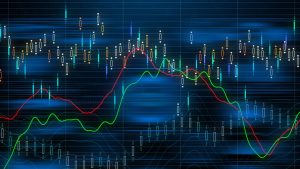Having designated market makers on exchanges is more important than ever as market structure continues to change.
Bats Global Markets received approval for its new market maker program, which uses a rewards-based system to incentivize market makers to make tighter quoted spreads with increased liquidity for each listing on Bats. Its Competitive Liquidity Provider program will particularly benefit small- and mid-cap companies who may have a lack of liquidity of their stock, which can make attracting larger investors difficult.
The CLP program will be used on Bats’ primary listings service. U.S. regulators last year gave approval for Bats to start listing shares, allowing the Kansas City-based trading platform to compete directly with the other exchanges offering listings, NYSE Euronext and Nasdaq OMX. It will look to attract listings away from its rivals by offering lower fees.
Market making has been going through a rebirth in light of fragmentation and from the May 6 flash crash. “On ‘the street,’ there’s a lot of talk that market makers really do provide a lot of value, as they have democratized the liquidity provision process,” Bryan Harkins, chief operating officer of Direct Edge told Markets Media. “Market makers can improve market quality. Launching market making on Direct Edge and working with our partners is the first step to improve overall market quality.”
Direct Edge launched its market maker program on Jan. 17, which it said will help to boost liquidity and improve market quality for participants.
Market makers are market participants that are obligated to quote a buy and sell price for a particular financial instrument, in the goal of making a profit on the bid-ask spread. In exchange, the trading venue usually grants the market maker informational and trade execution advantages. Some venues allow market makers to engage in naked short selling of a stock, or selling it without borrowing it. Historically, on the New York Stock Exchange and the American Stock Exchange, market makers were referred to as “specialists.”
Market making becoming increasingly important for the markets as trading volume is on the decline and as liquidity has been showing signs of drying up. Following the flash crash, the authorities proposed tighter regulations for market makers, in part to ensure that they continue to provide useful liquidity in times of market stress. Among the discussions are incentives that can be provided to the designated market makers. Profit margins for market makers have been declining amid a proliferation of high-frequency trading and the resulting reduction of the bid-ask spread.

